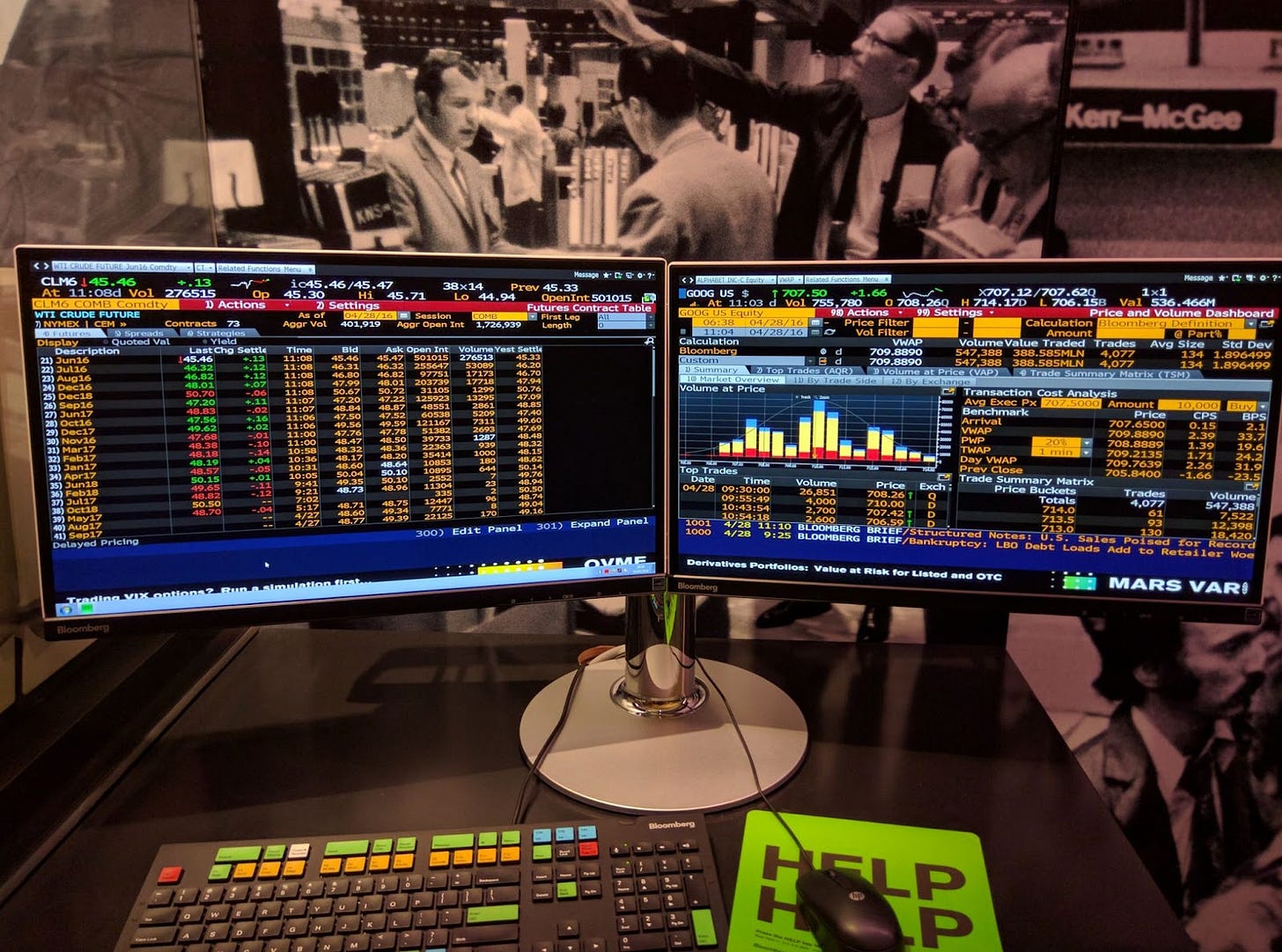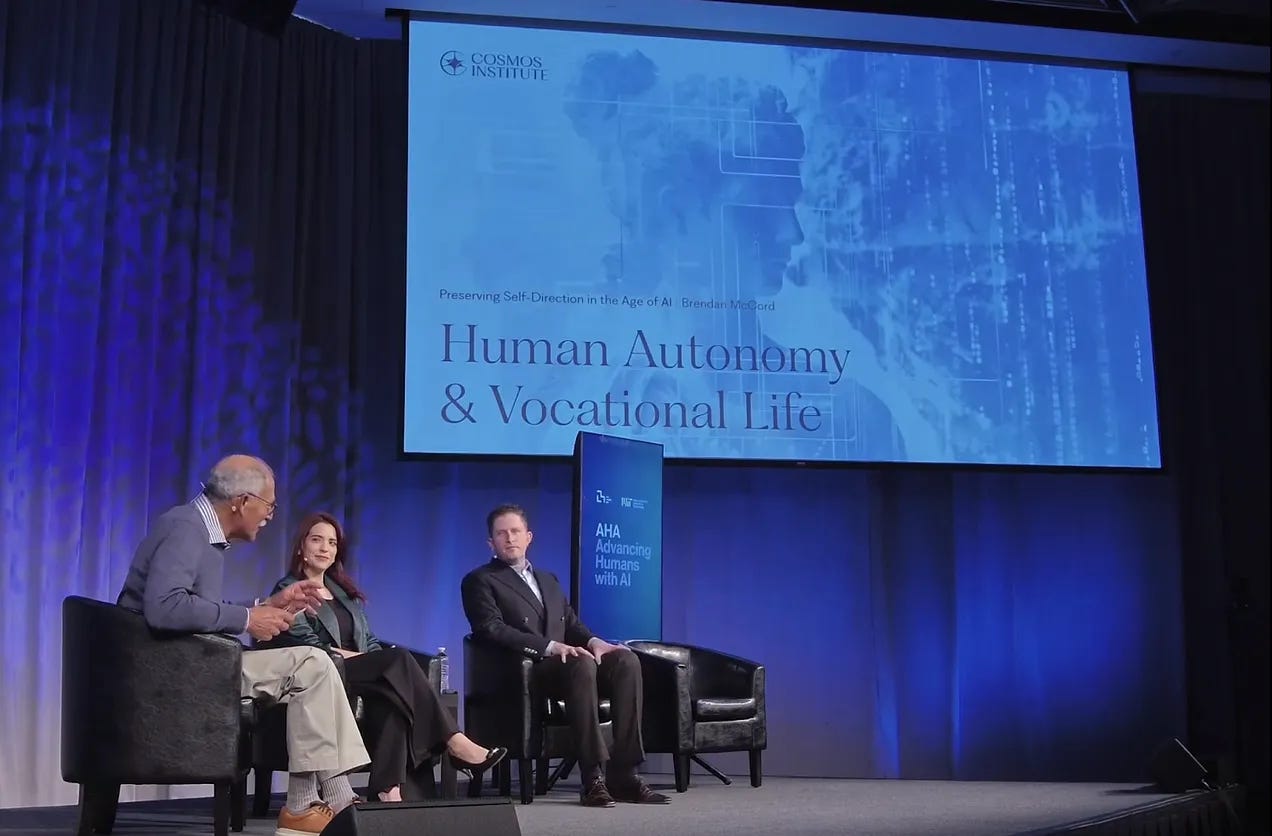AI vs. the Self-Directed Career
Humboldtian advice for staying autonomous when deferring is easy.
Two centuries ago, as mechanization began reshaping society, German philosopher Wilhelm von Humboldt issued a vision and a warning.

Through Humboldt’s lens, the work we choose defines us. Not just as economic beings seeking survival or material comfort, but as the architects of our own becoming.
As humans we arrive with innate potentialities: latent capacities and natural inclinations that provide starting points for development. It is very often through our work that we discover these potentialities, develop them through practice, and determine how best to express them.
Humboldt recognized a fundamental tension in his age that has only intensified today: when systems promise efficiency and optimization of our path, they risk diminishing our capacity for self-authorship.
Humboldt's concern wasn't automation per se. As a child of the Enlightenment, he would've been optimistic about technology's potential. His concern was preserving human autonomy in an incipient age of automation.
Fast forward to today, AI mediates 20% of waking life. It is poised to automate not just our means, but increasingly our deliberation about ends as well. Humboldt's warning has become our defining challenge.
How we dropped the “self” in self-employed

The ideal that Thomas Jefferson championed for early America was that of the independent individual, the self-reliant farmer or artisan directing their own labor. This vision emphasized virtues essential to freedom: things like independence, self-reliance, and responsibility for outcomes. It portrayed work, at its best, as a self-governed activity.
But the Industrial Revolution transformed this relationship to work. Millions of individuals moved into factories and large organizations where their work was increasingly guided by predefined processes and the direction of others.
This shift unlocked unprecedented economic growth and incredible equipment for flourishing. But we also became a society of employees.
In the early American economy, around 80% of the free workers were self-employed on farms or in small crafts; today, only about 10% of Americans are self-employed.
What did that transformation do, not only to our capacity for self-direction, but to our hunger for it? Once tasted, autonomy seems to become essential to well-being—yet when denied, our very desire for it can wither. Like a muscle unused, both our ability and our appetite for self-governance can atrophy. This makes autonomy both precious and vulnerable.
Autocomplete Adaptation for Life
Will AI be the decisive next phase of a drift away from autonomy? Will the flame that once illuminated our republic—the fire of self-governance and self-authorship—sputter and fade, in the gentle winds of algorithmic convenience?
Might we be ushering in a world where algorithms don't just carry out our instructions but increasingly shape how we decide what's good for us–suggesting our next word, our next action, our next career move, our next purpose…
Each small delegation of choice will likely seem harmless, even natural. But together, will these micro-abdications of judgment habituate us–choice by choice, day by day–away from self-governance and toward passivity and dependence?
I call this looming possibility (but not inevitability), “autocomplete for life.”
But what is the alternative?
In previous technological transitions, humans have adapted in part by developing new higher-level skills and forms of knowledge.
Our ancestors needed to know how to make bread; today, we just need to know where to find the bread recipe. In the future, we must navigate a different kind of knowing.
Specifically, AI demands a new metacognitive capacity: reflective discernment. We’ll need to be able to clearly differentiate our own reasoned judgments from the pull of algorithmic suggestion.
In other words, we must now think about how we think, in relation to systems that could do the thinking for us.
One practical challenge is knowing when to leverage AI and when to step back. Consider a designer who occasionally sketches by hand despite faster digital tools, or a physician who sometimes works through a diagnosis without the prompt suggestions of medical AI. These aren't acts of nostalgia, but deliberate exercises in maintaining the judgment capacities that define expertise.
This adaptation means choosing certain forms of productive friction rather than frictionless efficiency. It means preserving spaces where we work through problems with the full weight of our own judgment, because those experiences develop the very capacities that make us valuable in an automated world.
While the development of this metacognitive capacity is fundamentally our responsibility as individuals, education and tool design will enable more effective adaptation.

In the latter case, consider the design philosophy of tools like the Bloomberg Terminal in finance:
Rather than optimizing for convenience or frictionless experience, it optimizes for human decision quality and judgment development.
Rather than narrowing our intellectual periphery, it attempts to expand it.
These principles offer a template for tools that scaffold and develop human judgment—preserving the autonomy Humboldt saw as essential to flourishing.
A New Generation at the Wheel
And this is why, at Cosmos Institute, our mission is to develop philosopher-builders: thinkers who can both understand these deep human needs and create technologies that honor them.
Humboldt was a child of the Enlightenment—shaped by its ideals of rational inquiry, empirical observation, and belief in human progress. Today, my own children are part of the first generation in human history developing alongside AI systems matching or exceeding human cognitive capabilities in many domains.
These 'children of the AI era' will be fundamentally shaped—their entire conception of work, knowledge, and purpose developing in conversation with the philosophical and practical possibilities AI systems introduce to their worldview from an early age.
The question before us is whether we will shape AI with the same courage and clarity that Humboldt brought to his age. Will we design our systems to foster autonomous judgment rather than algorithmic dependence? Will we preserve spaces for the friction of independent thought amid the frictionless efficiencies of automation?
The path from "autocomplete for life" to “adaptation for life” and genuine self-authorship will be forged deliberately, by this rising generation who—if we succeed—will carry forward our most essential human inheritance:
The capacity to direct our own becoming through living a life that bears the unmistakable imprint of our own judgment.
Many thanks to MIT’s AHA Symposium for hosting the panel event, and recording the talk (you can find this at 3:40:12 in the live stream)
References:
Wilhelm von Humboldt, The Limits of State Action
Thomas Jefferson, Notes on the State of Virginia, Query XIX, ("Manufactures"), 1785 (link); Letter to John Jay, August 23, 1785 (link)
U.S. Census Bureau. "Historical Statistics of the United States, Colonial Times to 1957." (link)
Reddit thread, “What’s so special about a Bloomberg Terminal anyways?” (link)









Yes: "Specifically, AI demands a new metacognitive capacity: reflective discernment. We’ll need to be able to clearly differentiate our own reasoned judgments from the pull of algorithmic suggestion."
And - Great to see the lives stream for MIT AHA available!
I found myself agreeing out loud at several places in this piece. As an entrepreneur-at-heart who's spent time as an employee in various careers before leaving for the next stage of my own development, I've seen this first-hand, even before the mass adoption of AI. It's wake-up time to reclaim self-authorship.